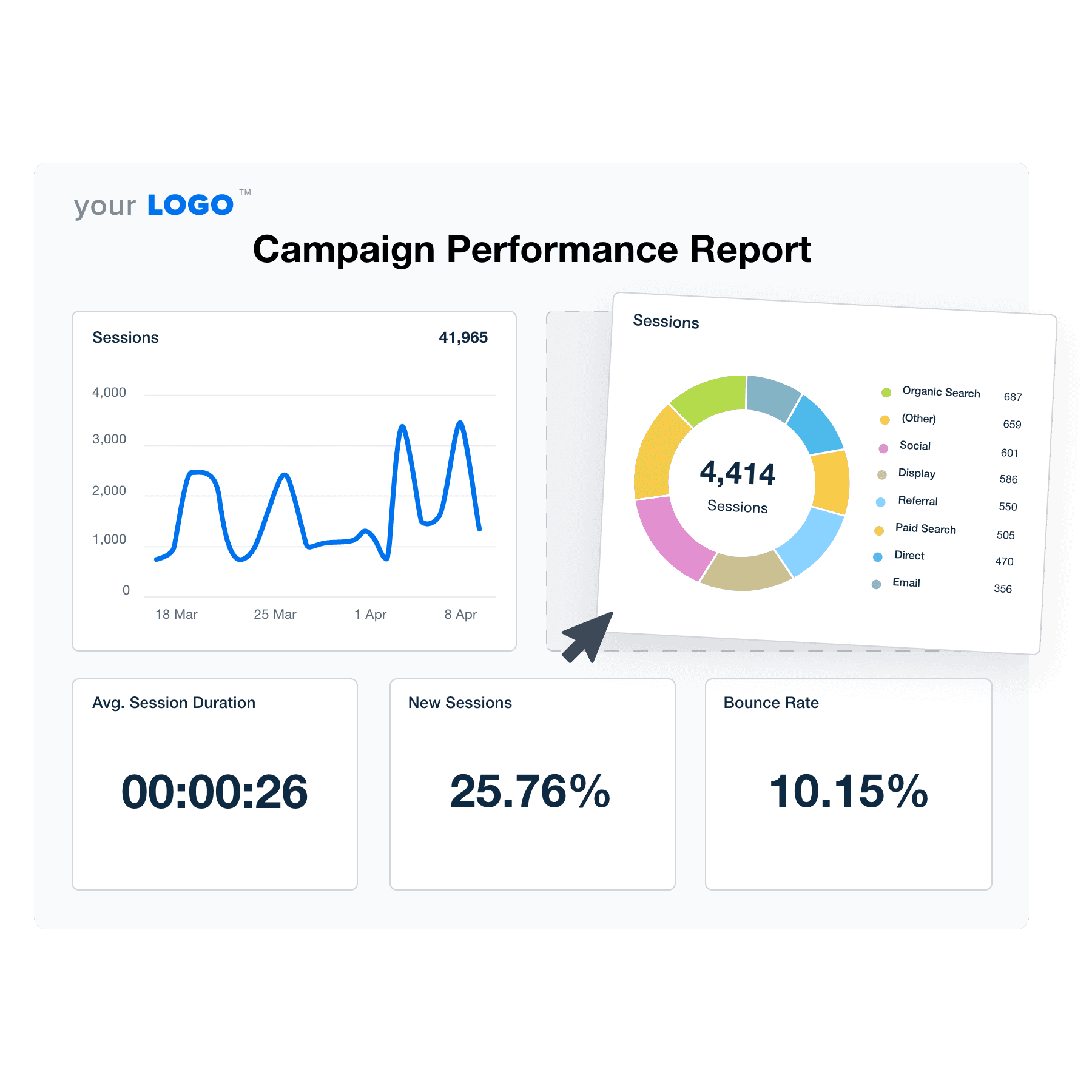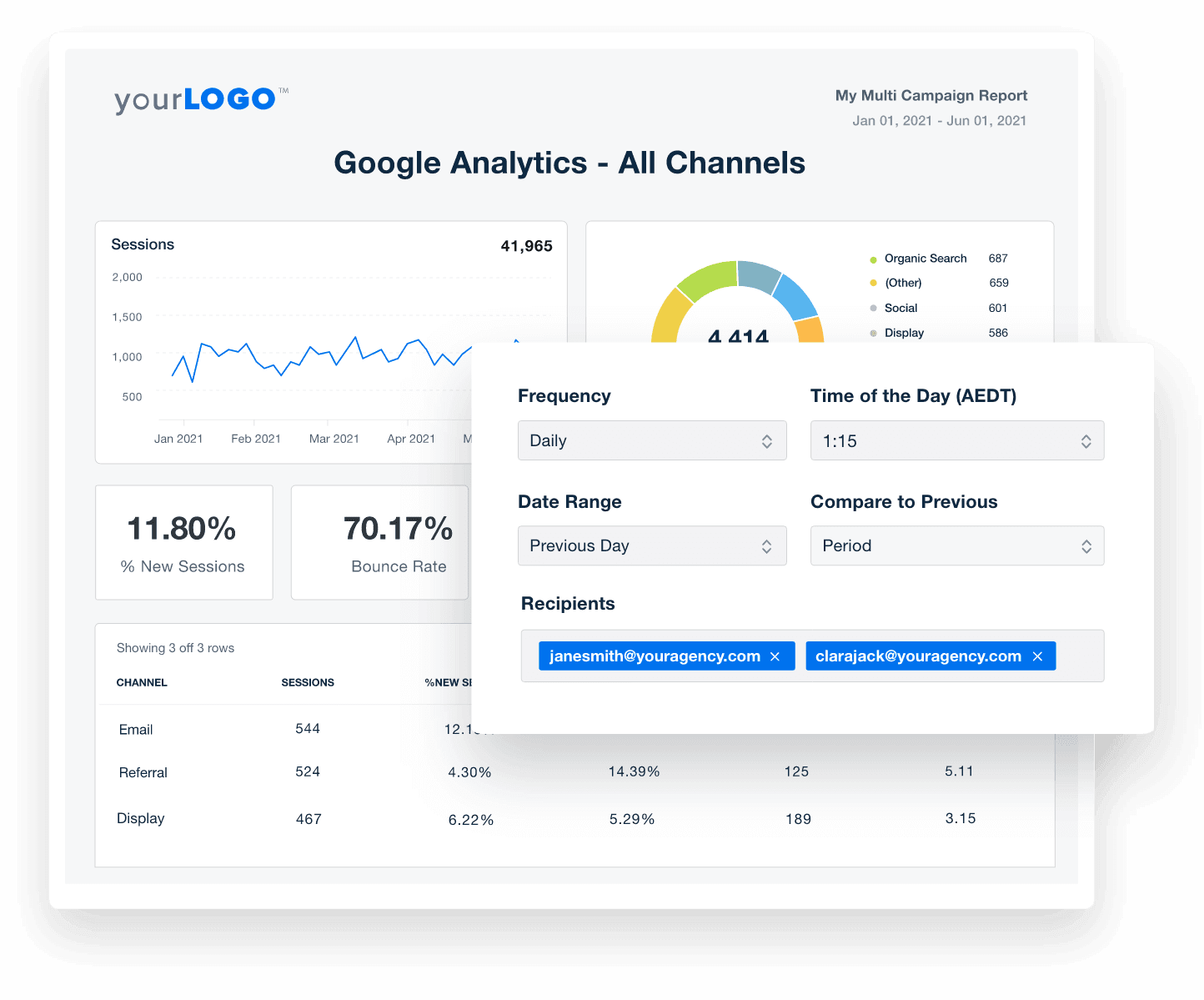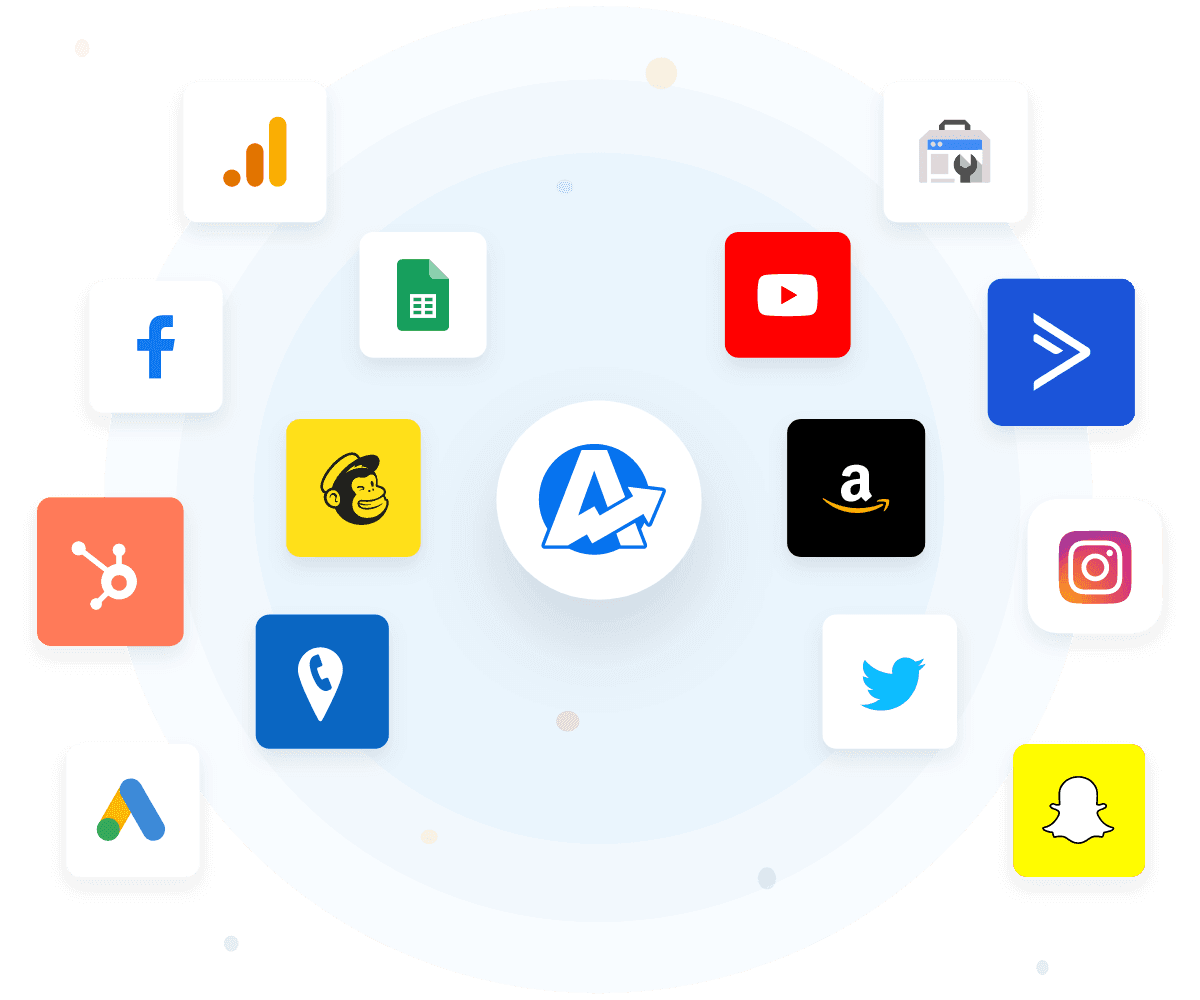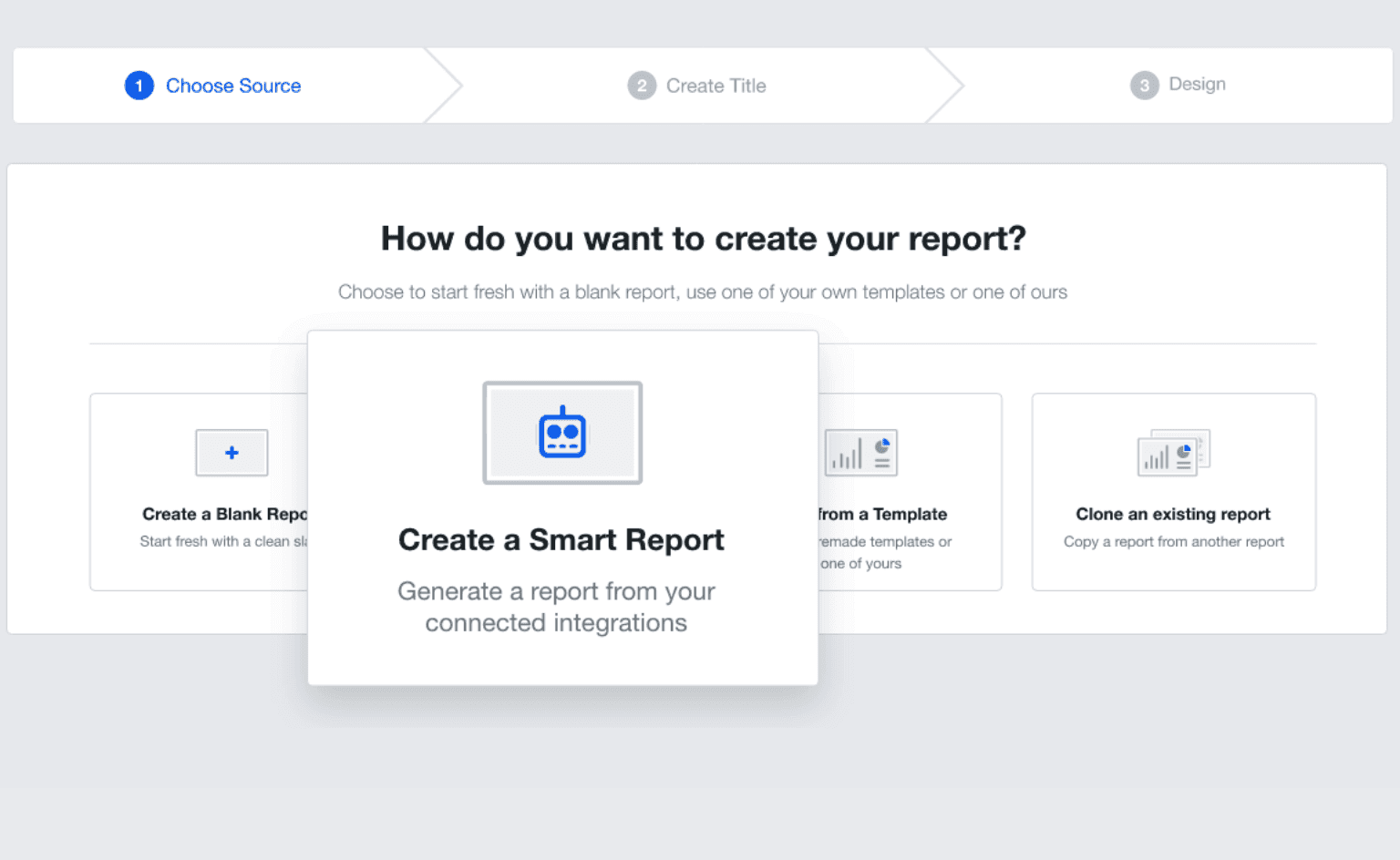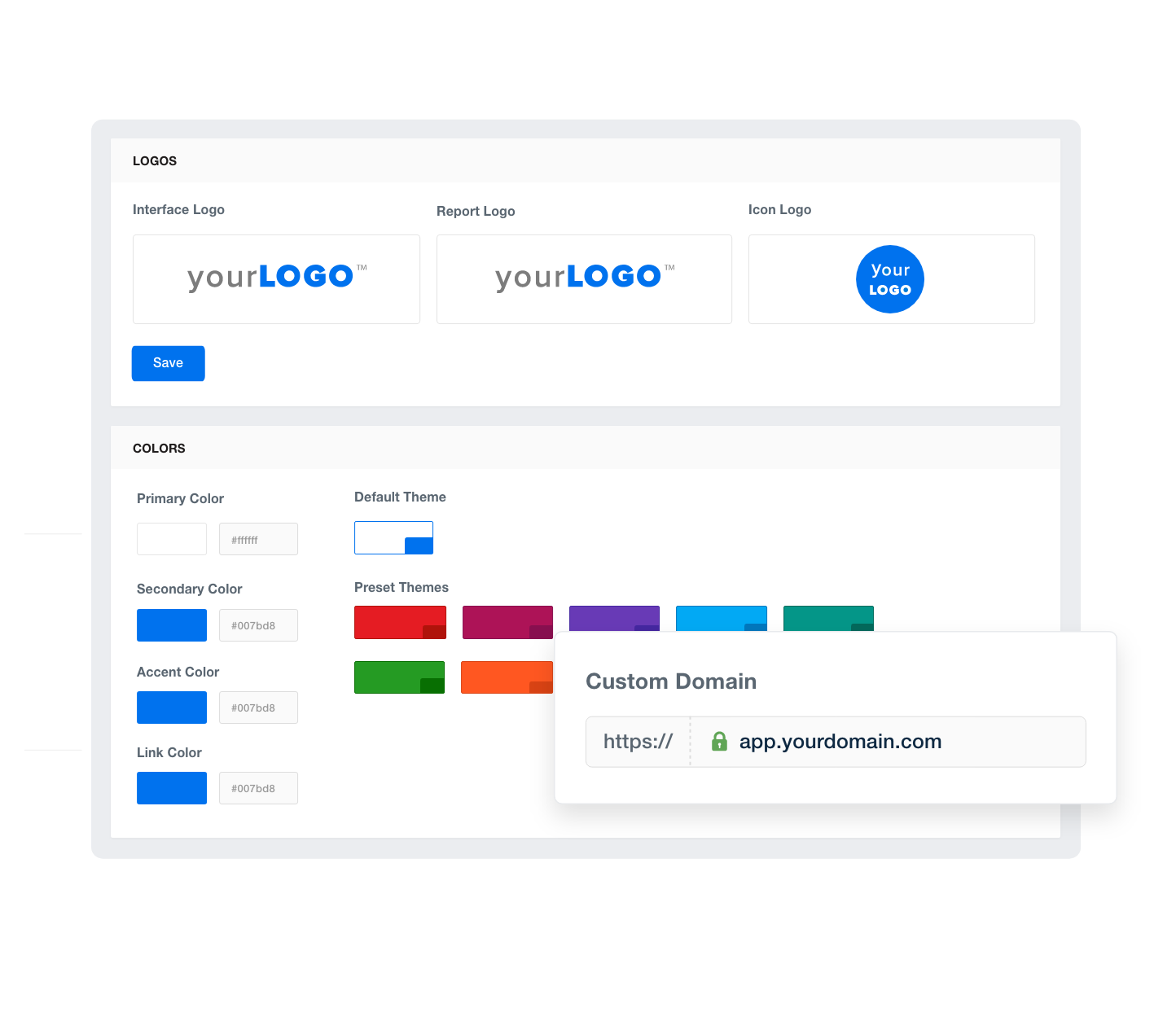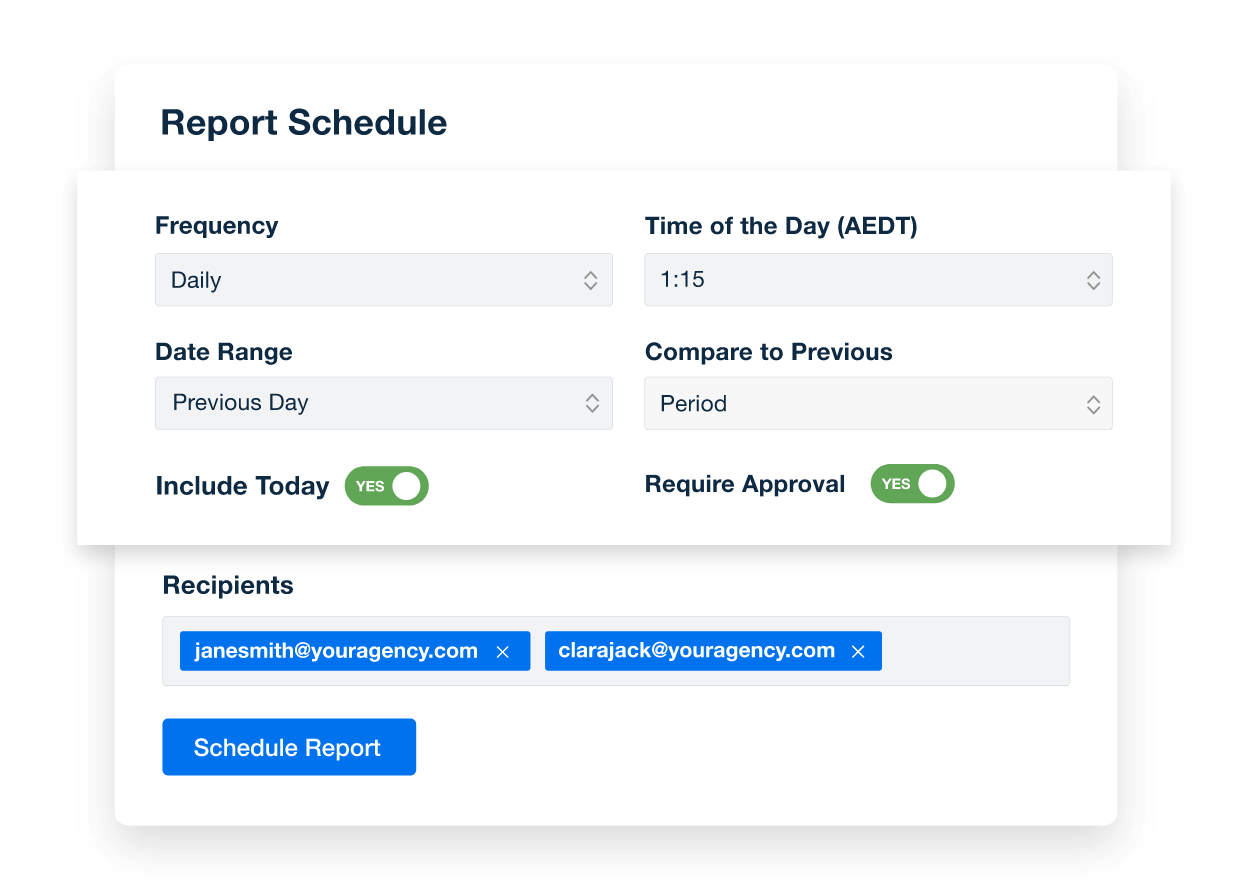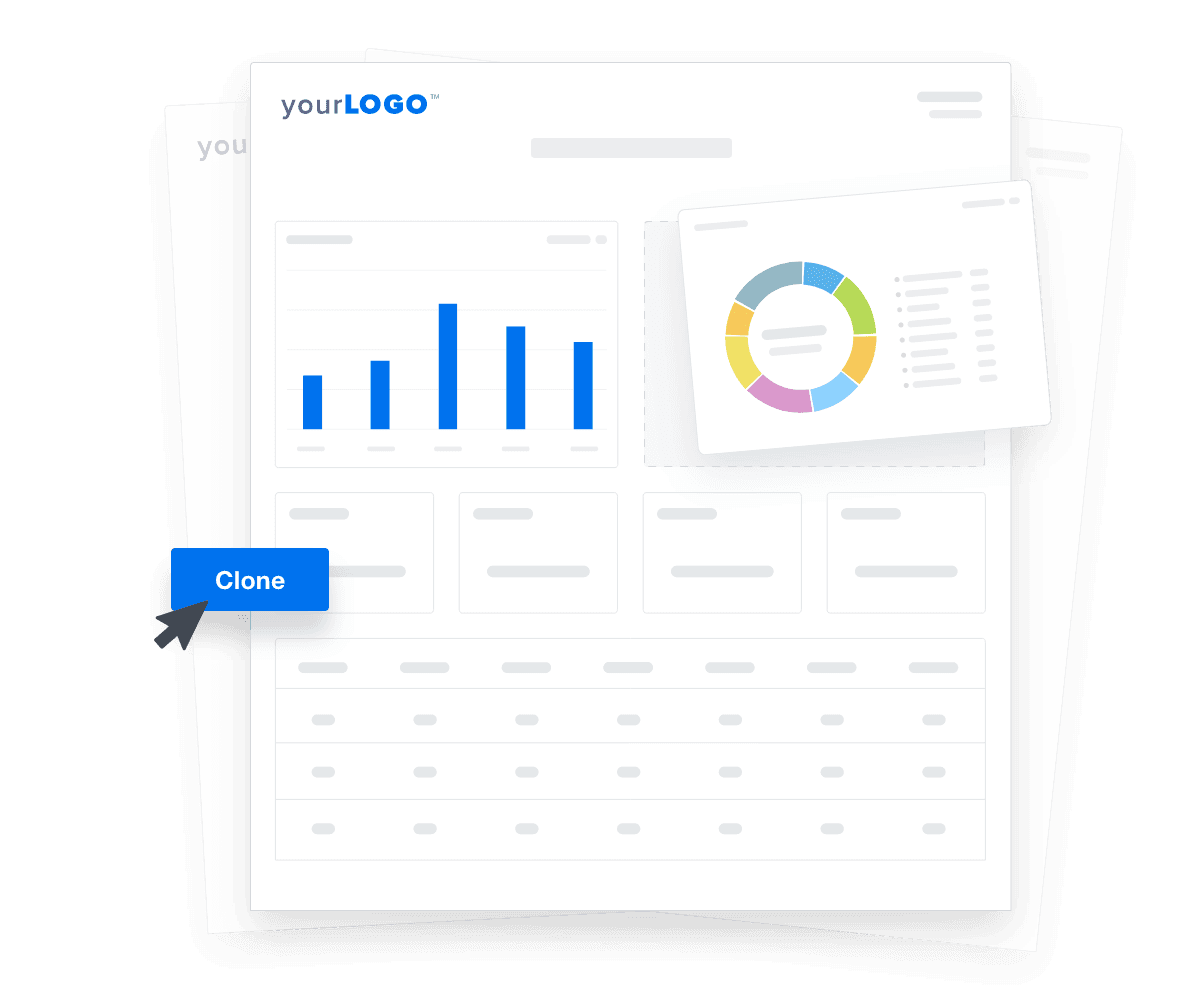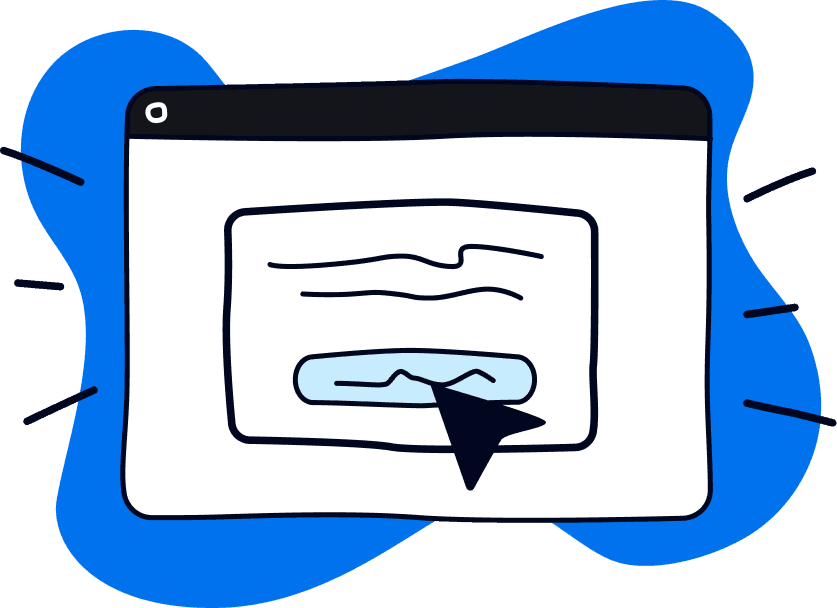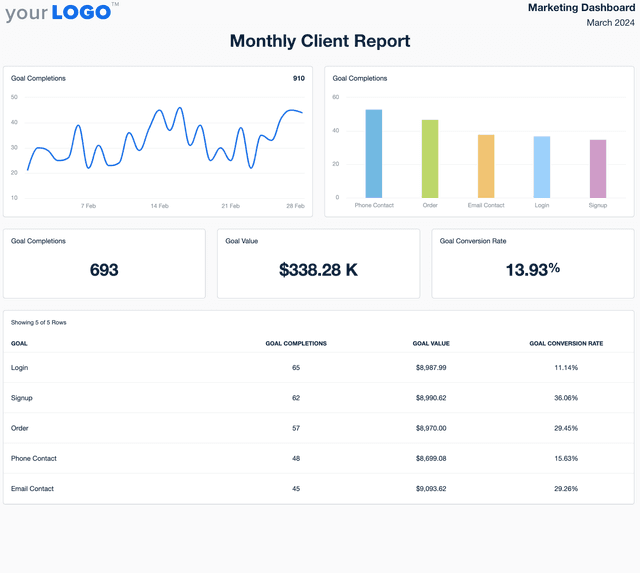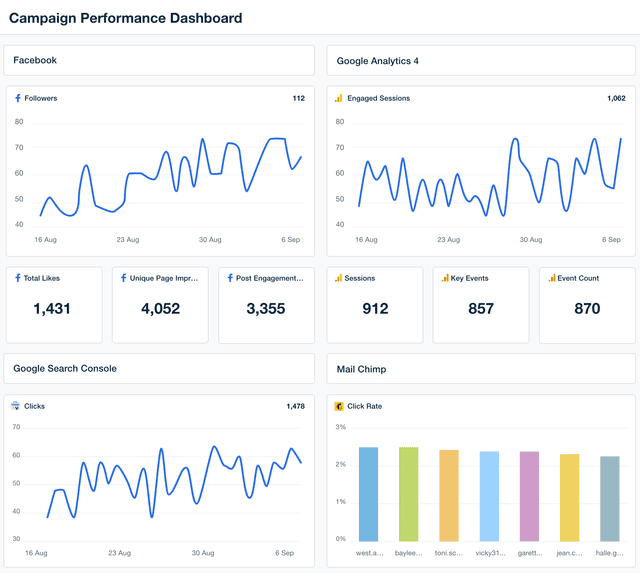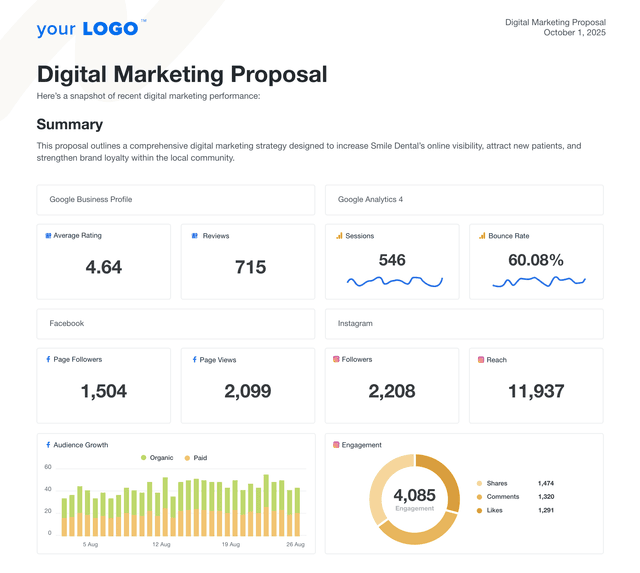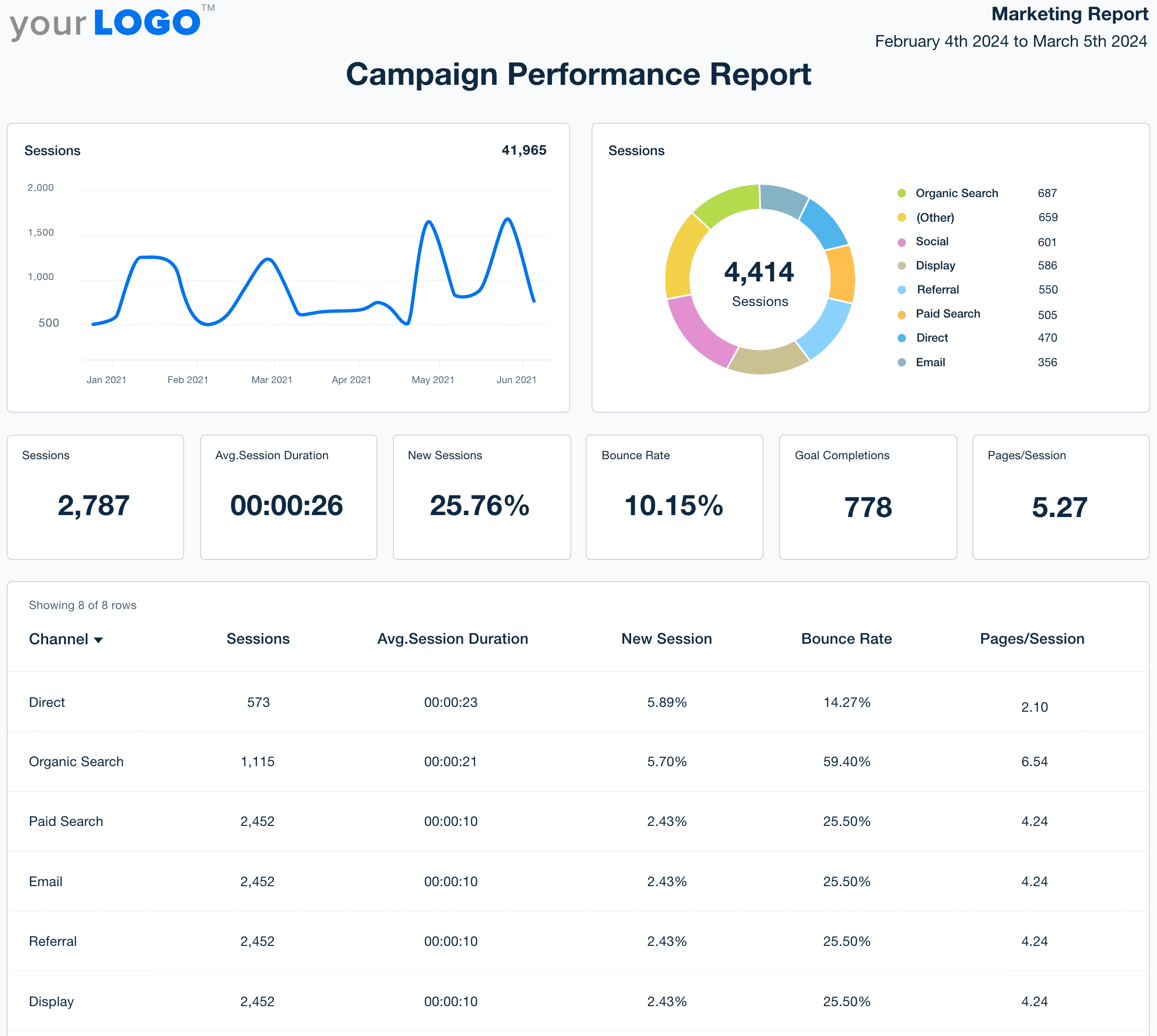
Campaign Performance Report Template for Effortless Tracking

Customizable Campaign Report Templates Built for Client Reporting
Build professional, on-brand reports in less time using campaign report templates tailored for agency workflows. Customize the layout, apply your agency’s branding, and surface key campaign metrics with simple drag-and-drop tools.
Templates connect directly to live marketing data, reducing manual effort and giving your team more time to optimize campaigns, build strategy, and scale client results.
Custom Campaign Performance Reports as Unique as Your Agency
Reclaim Billable Hours
Automate Your Agency’s Reporting Process
AgencyAnalytics automates time-consuming reporting and eliminates manual data entry. No more laborious data collection–just a reporting solution that does the heavy lifting for you.
Win back billable hours, help clients meet their marketing goals, and strengthen your agency’s operations.
Seamless Connectivity
All Your Reporting Tools in One Place
AgencyAnalytics automates collection across 80+ platforms. It’s a must-have for all marketing agencies to save time and maximize operational efficiency.
Invest in a centralized reporting hub and store client data in one place. Quickly access a complete overview of marketing performance, all in one place.
Your Success Toolkit
11-Second Smart Reports
For agencies, time is literally money. No need to waste it on manual report creation–use the handy Smart Report feature and get the job done in just 11 seconds.
Watch as your client’s marketing metrics automatically populate into a professional, custom report. Provide clients with data-driven insights without the headache of manual reporting.
Your Agency, Front and Center
Custom Branding on Every Report
Build trust, recognition, and loyalty through white-labeled reports. Take things up a notch by adding your agency’s logo and brand colors.
Go a step further by adding a personalized cover page to each report. Solidify your identity and ensure brand recognition in every client interaction.
Always on Time
Put Campaign Performance Reporting on Autopilot
Ensure that clients receive timely updates with the report scheduling feature. Whether it’s an update or a regular monthly report, automate the entire delivery process.
This reduces the time spent on administrative work, leaving you with more time to improve client satisfaction and upsell services.
Report Smarter. Not Harder.
Automate Reporting and Focus On What Matters
Easily create automated reports with marketing analytics from 80+ platforms and counting.
Integrate data from Google Ads, TikTok, Majestic, and more. Customize any dashboard template or marketing report to suit your client’s needs. Replicate templates to speed up client onboarding and enhance the reporting experience.
8 Key Sections Included in a Campaign Performance Report
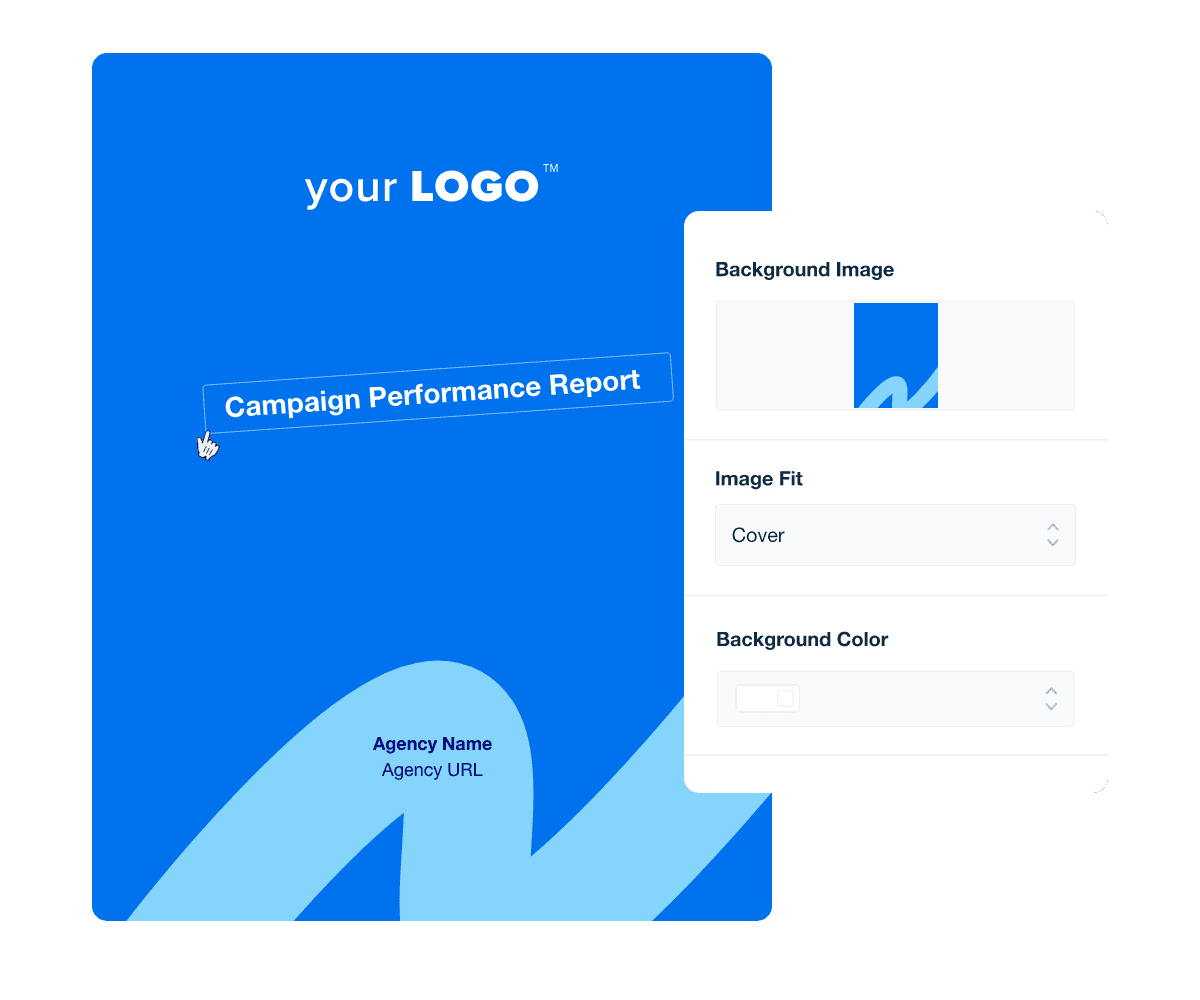
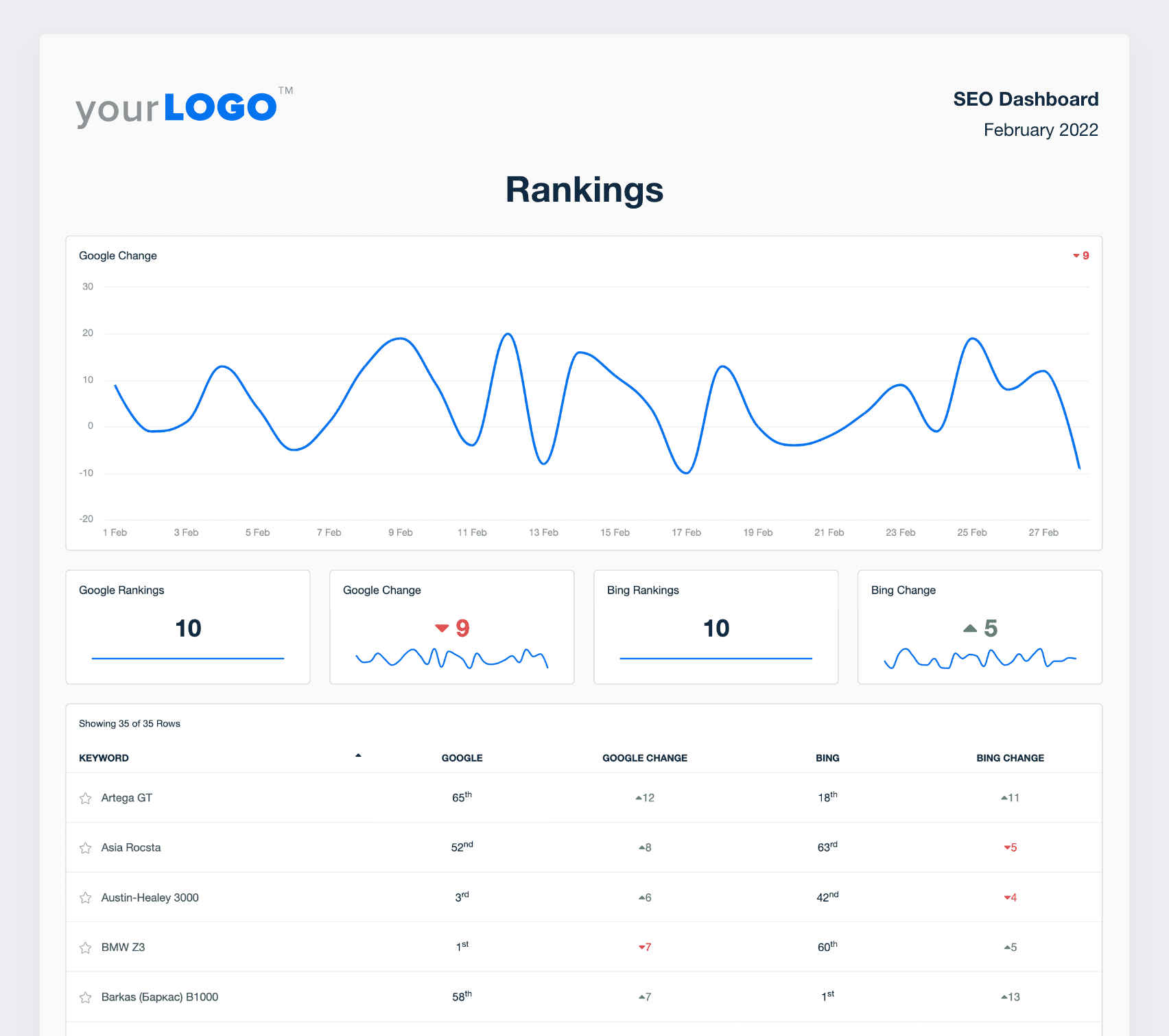
FAQs About Custom Campaign Performance Report Templates
Still have questions about how to create and use custom Campaign Performance Report Templates? Don’t worry, we’ve got you covered.
A Campaign Performance Report Template is a structured framework that consolidates data from various marketing channels. It enables marketing teams to track key metrics, assess the effectiveness of marketing strategies, and present clear insights to stakeholders.
A comprehensive Campaign Performance Report Template should include key performance indicators (KPIs) such as impressions, clicks, conversions, cost per acquisition, and return on ad spend. These indicators help marketing managers evaluate campaign performance and make informed decisions to optimize future marketing efforts.
By providing a centralized view of campaign data, the template allows marketing teams to identify trends, measure the impact of marketing activities, and refine strategies to enhance overall effectiveness.
Yes. The Campaign Performance Report Template supports automated marketing reports that pull in up-to-date performance data from over 80 marketing platform data connectors, eliminating the manual data retrieval process, streamlining the reporting process, and ensuring timely delivery of insights.
Using a Campaign Performance Report Template helps agencies streamline reporting processes, maintain consistency, and present data in a professional format. It helps demonstrate the value of marketing efforts, fosters transparent communication with clients, and supports data-driven decision-making to enhance campaign strategies.
Yes. The Campaign Performance Report Template is fully customizable to match agency reporting needs. From highlighting specific KPIs to aligning visual layouts with each client’s branding and goals, agencies make each report an accurate reflection of strategy and success.
Agencies tracking website engagement start with the web analytics report template. They add social data from the social media reporting template, combine it with organic search insights from the SEO performance report, and wrap up paid campaign results with the PPC monthly report template. All of this is compiled in the monthly digital marketing report template.
See how 7,000+ marketing agencies help clients win
Start Your Trial Now
Free 14-day trial. No credit card required.


